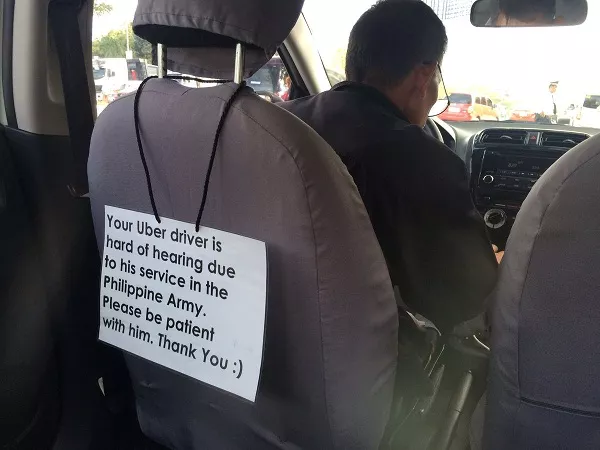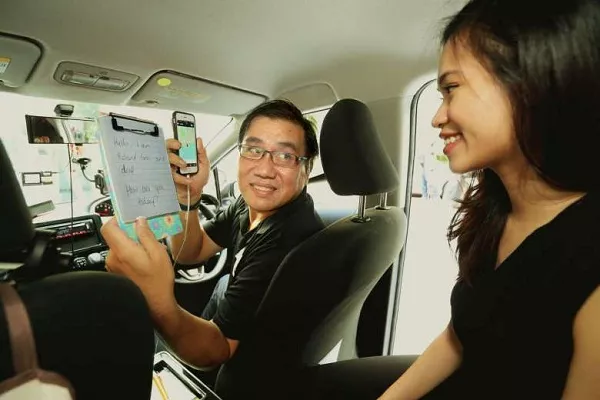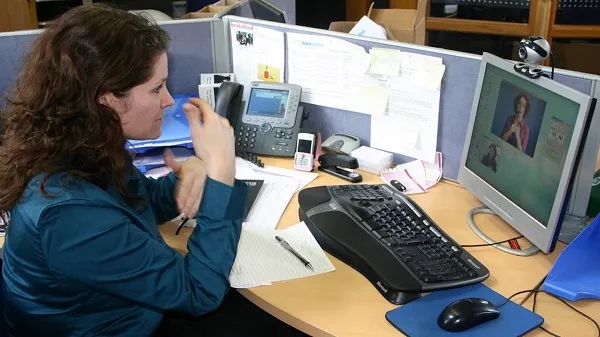We all know how vicious Metro Manila traffic can be: reckless drivers, chaos lurking at every corner and many other factors that stress out passengers, even more so for drivers. In today’s hectic times, being on the road is not as enjoyable as it once was.
Safety is constantly compromised and hazards are everywhere. This kind of environment is already dangerous enough for those of us who are able-bodied, what more for those who have to deal with disabilities? Are they able to take advantage of mobility options the way the rest of us can? Read this article from Philkotse.com to find out.
1. It is their right
In the Philippines, hearing-impaired individuals are generally allowed to be issued a driver's license and operate a motor vehicle, as part of PWD-friendly laws being implemented in the country. After all, hearing-impaired individuals have lives to live just like everyone else, and they can't do that if they're not able to take public transportation or drive themselves to wherever they need to be, whether it be due to medical reasons, occupational requirements, or just for the purposes of leisure.
>>> Read more: Driver's License in the Philippines: All You Need to Know
Since it would be more challenging for hearing-impaired people to take the wheel, numerous safety concerns had to be considered. Thanks to continuous advancements in automotive technology, a number of improvements were made to accommodate their needs by focusing on their remaining senses, notably sight and touch.
One example of this was recently launched by Hyundai, featuring two separate driving assist systems; one uses pictograms to alert drivers of nearby hazards and LEDs for navigational information, and the other incorporates vibration feedback on the steering wheel.
Even before these innovations came about, many hearing-impaired drivers have managed to adapt; one deaf driver claims that simply by being observant and alert, he can readily tell if an ambulance or other emergency vehicle is nearby. Features like side mirrors come standard in a car for purposes like this, something that able-bodied drivers would be wise to take note of.

Many countries allow deaf people to obtain a driver’s license as far as their respective transport laws allow
According to a study, hearing-impaired drivers are no more likely to be involved in road accidents than regular drivers.
Countries in the Asia Pacific regions such as Australia, Indonesia, Japan, Malaysia, and the Philippines have largely granted driving licenses to hearing-impaired motorists, in accordance with their respective transport laws.
One inspiring story that made the rounds of social media was that of a tricycle driver, who would draw the attention of his passengers towards a sign, letting them know that he was hearing-impaired and asking them to indicate their destination by pointing on a list.
According to the netizen who shared the anecdote, she was heartbroken at the driver's disability yet awestruck that someone so afflicted would insist on making an honest living every day. Another story was that of an Uber driver displaying a sign behind his seat asking passengers to be patient with him since he was hard of hearing as a result of serving in the Philippine Army.
2. Republic Act No. 7277
Otherwise known as the “Magna Carta for Disabled Persons”, RA 7277 lists the rights and privileges that PWDs are entitled to. The law lays down specific requirements and procedures for hearing-impaired individuals who wish to obtain a driver’s license, especially a written recommendation or medical certificate from a government-accredited physician.
In addition, an applicant still needs to pass exams both written and practical, obtain a student permit and undergo driving instruction for 30 days, before being eligible for a professional driver's license.
Do note, however, that the Land Transportation Office excludes certain disabilities, such as total blindness and double amputations. In addition, applicants need to demonstrate that the vehicle being driven has been sufficiently customized to address their particular disability; by extension, this means that disabled motorists are limited to driving these vehicles since these are most appropriate for their abilities and public safety.

Republic Act No. 7277, the “Magna Carta for Disabled Persons” lays down provisions, privileges, and rights that a disabled person is entitled to have
3. Uber's “Project Beethoven”
Unfortunately, many deaf drivers are still not safe from the prejudice of able-bodied people who just don't understand their situation. In an interview with CNN, one Uber driver stated that he managed to lip-read some of his passengers' remarks about having a deaf driver, adding that he chose not to mind them, although it made him feel bad.
Back when Uber Philippines was still operating in the country, they implemented a program called “Project Beethoven”, to help deaf drivers communicate with their passengers. This involves notifying the passenger that the driver is deaf and that special features have been added to enhance the service delivery of the driver.

Back when Uber was still in the Philippines, they implemented “Project Beethoven” to help deaf drivers communicate with their passengers
Instead of beeping as a new notification or alert comes in, the screen will just flash and blink as a visual signal to the driver. When passengers are matched to a nearby driver who happens to be deaf, the “call driver” feature is eliminated; instead, text messages are sent as a primary means of communication between them.
To make it easier for the driver to know where the rider intends to go, directions are added in, and a destination is inputted immediately. One can only hope that innovations like this will be adopted by other TNVS companies, in order to provide an opportunity for PWD drivers to earn a living despite their disabilities.
4. Other career options for deaf people
Luckily, with the advent of technology, there are virtual jobs that a deaf person could do. If they need to interact with others, various apps such as Skype, Facebook Messenger, Viber, and WhatsApp give them options other than voice communication. Others who have a knack for visual creations can train to be graphic designers.
Hearing-impaired individuals who have a nose for knowing the latest trends across social media platforms can be social media managers. Those who have a way with words and can express themselves more eloquently on print or using a keyboard can be part-time writers.
If able-bodied people can leave corporate life because of more flexible career options, then deaf people can do it too.

With the advent of technology, there are many virtual jobs that a deaf person could do
Hearing disabilities, whether acquired from birth or resulting from circumstances beyond a person's control, can be challenging to deal with. But there is still hope for hearing-impaired people, as long as they are able to adapt to their circumstances and are supported by everyone else in their efforts to lead relatively normal lives.
>>> Click to get more helpful tips and advice for all car drivers
Recent posts
- The Difference between LTO Professional License and Non-Professional License for Drivers: Which Should You Apply For? Aug 26, 2021
- Disability Insurance: Why the Working Filipinos Need It? Mar 05, 2019
- Car Modifications for Handicapped Drivers Feb 26, 2019
- How much can you earn per month as a Grab/Uber driver in the Philippines? Oct 14, 2020
- 6 best Used Vehicles to Drive for Grab/Uber Dec 28, 2022












